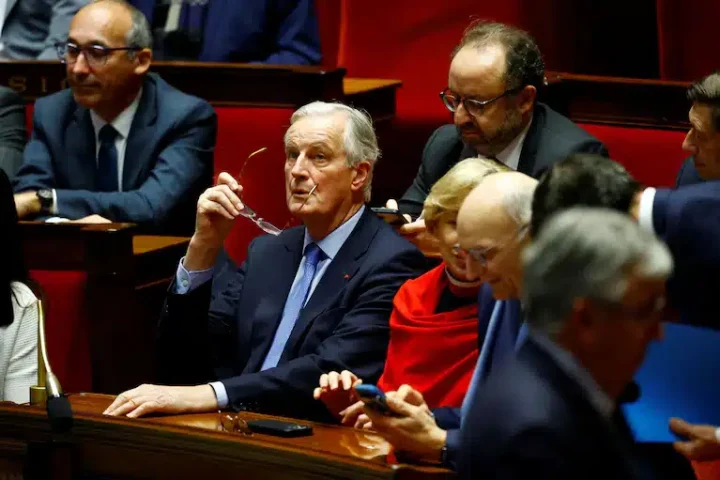By: Chioma Madonna Ndukwu
Michel Barnier resigned as France’s Prime Minister following a no-confidence vote that ousted his government, ending his tumultuous three-month tenure—“the shortest for any prime minister in modern French history.” This resignation throws France into a state of uncertainty, with President Emmanuel Macron now scrambling to appoint a replacement amidst mounting pressure to stabilize his administration.
The no-confidence motion was passed by an unexpected alliance between the left-wing Popular Front and the far-right National Rally, forcing Barnier out. Macron’s centrist coalition, Ensemble, had failed to secure a majority in the National Assembly, holding just 245 of the 577 seats, which left Barnier’s government highly vulnerable. According to Le Parisien, “an alliance between the Popular Front and the National Rally united to pass the no-confidence motion,” marking a significant shift in France’s political landscape.
Despite Barnier’s resignation, Macron’s presidency remains secure, as the French constitution makes it almost impossible to remove a sitting president. However, Macron’s weakened position is evident. As sources close to the presidency noted, Macron is “keen to appoint a new prime minister before the much-anticipated reopening ceremony of Notre-Dame Cathedral this Saturday.”
Among the potential replacements is François Bayrou, the leader of the centrist MoDem party and a long-time ally of Macron. This decision will be critical for Macron’s ability to navigate France’s increasingly fractured political scene, especially as he grapples with key issues like inflation, social inequality, and the ongoing energy crisis.
Barnier’s swift fall highlights the volatility of France’s current political system, where fragile coalitions and shifting alliances have made governance increasingly difficult. Macron, while not at immediate risk of losing the presidency, faces a daunting task: to appoint a prime minister capable of uniting a divided parliament and steering the country through pressing challenges. His next move could define the trajectory of his remaining time in office.


